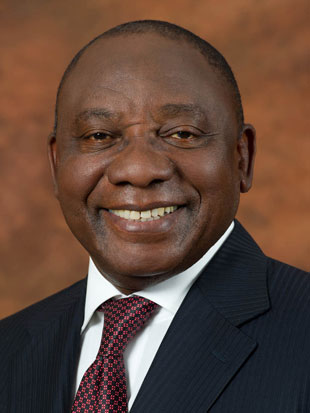The UN is humanity‘s best chance at peace and development
 Dear Fellow South African,
Dear Fellow South African,
This week we will be attending the 80th session of the United Nations General Assembly in New York. It is taking place at a time when the global rules-based system is profoundly fragile.
Eighty years since the UN Charter committed countries of the world to work together to advance peace, promote development and uphold the rules of international justice and protect human rights, the UN is under increasing scrutiny.
According to the UN’s own data, the number of global conflicts are at the highest levels since the end of the Second World War. Nearly half of the world’s 1.1 billion population who live in acute poverty are in countries wracked by violent conflict.
Global health and pandemic response and preparedness is under serious threat following the withdrawal of global health financing and aid.
Although last year was the warmest year on record, the global climate response is faltering. Current climate action and country ambition is failing to prevent global warming.
As the UN General Assembly convenes this week under the theme “Accelerating Global Progress Through Intergenerational Collaboration” the stakes have never been higher.
The UN is struggling to meet its mandate as contained in the UN Charter. It continues to be hampered by competing national interests that impede collective action. There is a lack of political will among member states to address many challenges, including the chronic underfunding of peacekeeping operations.
But by far the most serious hindrance to the UN fulfilling its mandate is the structure and operation of the UN Security Council. Despite changes in global power relations over more than half a century, the decision making architecture that has enabled the five permanent members to have veto powers has not changed since the end of the Second World War. These five permanent members effectively make decisions on behalf of more than 85% of the world’s population living in countries of the Global South. They continue to use their veto powers to effectively paralyse collective action and prevent timely responses to crises, even in the face of clear violations of international law.
South Africa has been consistent in its calls for UN Security Council reform and for it to better reflect global realities. The current composition of the UN Security Council and its record of decisions seriously undermine the spirit of global cooperation and weaken the UN’s commitment to neutrality and its legitimacy.
Efforts at reform, such as proposals to expand the permanent membership of the Security Council, improving regional representation, and restricting the use of the veto, have stalled and must be reinvigorated with urgency.
At a time of widespread poverty and underdevelopment, when human rights are under threat worldwide and where geopolitical tensions are creating instability across the globe, advancing multilateralism is more critical than ever.
If the global, rules-based system is to have practical meaning, the UN must exercise its leadership role of global governance. The UN must actively enforce international law and human rights standards for all, and not the select few.
The message South Africa takes to this year’s General Assembly is that if the organisation is to remain relevant and if the global, rules-based system is to endure, the UN must demonstrate in both word and deed that multilateralism is alive. Despite its many challenges, the UN remains humanity’s best chance at peace, security and sustainable development for all.
With best regards,
Cyril Ramaphosa is the President of South Africa
Legal Disclaimer:
EIN Presswire provides this news content "as is" without warranty of any kind. We do not accept any responsibility or liability for the accuracy, content, images, videos, licenses, completeness, legality, or reliability of the information contained in this article. If you have any complaints or copyright issues related to this article, kindly contact the author above.
